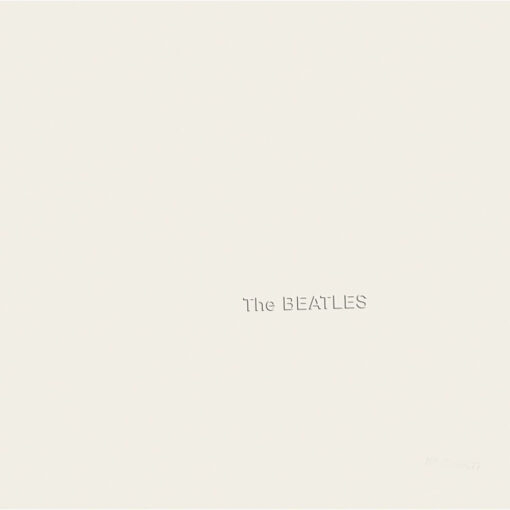- Published on 1968
- Author: Harrison
- Track 12 on “The Beatles – White Album“
GEORGE 1980: “‘Piggies’ is a social comment. I was stuck for one line in the middle until my mother came up with the lyric, ‘What they need is a damn good whacking’ which is a nice simple way of saying they need a good hiding. It needed to rhyme with ‘backing,’ ‘lacking,’ and had absolutely nothing to do with American policemen or Californian shagnasties!”
JOHN 1980: “I gave George a couple of lines about forks and knives and eating bacon.”
About “Piggies”
“Piggies” is a song from 1968 double album, commonly known as “The White Album.” Released on November 22, 1968, it is primarily written by George Harrison.
The song was recorded at EMI Studios in London, taking place on September 19 and 20, 1968. It has a duration of approximately 2 minutes and 4 seconds. Stylistically, “Piggies” has a satirical, whimsical quality and is characterized by its baroque and classical music-inspired arrangement. It features a harpsichord, a string quartet, and various sound effects.
“Piggies” is considered one of the more unique and experimental tracks on “The White Album.” Its whimsical style and social commentary have made it a subject of interest for Beatles fans and scholars. However, it also stirred some controversy due to its use of the phrase “what they need’s a damn good whacking,” which some interpreted as advocating violence. Harrison clarified that it was meant humorously and not to be taken literally.
The sound of pigs snorting at the end of the song was created using various sound effects. “Piggies” showcases George Harrison’s songwriting abilities and his willingness to explore unconventional musical styles and themes, adding depth and variety to The Beatles’ musical repertoire.
Meaning of “Piggies”
The lyrics of “Piggies” are a satirical commentary on materialism, social class distinctions, and societal values. The song uses the metaphor of “piggies” to portray a critical perspective on human behavior and consumerism.
The opening lines, “Have you seen the little piggies, crawling in the dirt?” present an image of people (the “piggies”) engrossed in mundane, materialistic pursuits (“crawling in the dirt“). This can be interpreted as a commentary on how some individuals become consumed by their pursuit of wealth or possessions.
The line “Always have clean shirts to play around in” can be seen as a commentary on the superficiality and obsession with appearances. The “clean shirts” suggest an emphasis on outward image rather than inner values or character.
“In their styes with all their backing, they don’t care what goes on around” suggests a sense of isolation or indifference among those who are deeply entrenched in their materialistic pursuits. The “styes” represent their isolated worlds, and the phrase “they don’t care what goes on around” implies a lack of concern for broader societal issues.
The phrase “What they need’s a damn good whacking” is somewhat controversial and has been interpreted in various ways. It’s possible that George Harrison meant it humorously, as an exaggerated expression of frustration towards those overly focused on materialism.
Overall, “Piggies” conveys George Harrison’s social commentary on a culture preoccupied with material wealth and societal distinctions. The choice of the pig as a metaphor is likely intentional, as pigs are often associated with greed and excess. The song invites listeners to reflect on the values and behaviors that drive consumerism and materialistic pursuits.
Personnel
The Beatles
- George Harrison – lead and harmony vocals, acoustic guitar, backing vocals, vocalised grunting
- John Lennon – tape effects, vocalised grunting, backing vocals
- Paul McCartney – bass, backing vocals
- Ringo Starr – tambourine, bass drum
Additional musicians
- Chris Thomas – harpsichord
- Henry Datyner – violin
- Eric Bowie – violin
- Norman Lederman – violin
- Ronald Thomas – violin
- John Underwood – viola
- Keith Cummings – viola
- Eldon Fox – cello
- Reginald Kilby – cello
- George Martin – string arrangement

